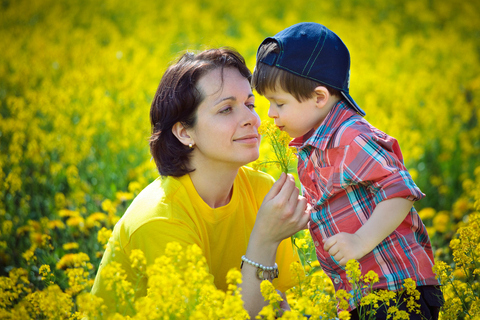Thirty-two sixth graders, five rows of seven desks each, paper and boxes flying, noise abounding, a look of panic in the teacher’s eyes. The climax of The Three Stooges Go To Grade School?
No.
My own classroom on the first day of my teaching career, 33 years ago.
After that first day, I did not plan to remain a teacher for long — only until I could find another job. Sitting in the teacher’s lounge after classes ended, my confidence in myself was at its lowest.
Nothing had gone right. Everything had gone wrong; I made so many mistakes and had taught nothing. I was a failure as a teacher. (Real estate? Used cars? What would I do?)
Fortunately, Audrey came in.
Audrey was an older teacher who worked across the hall from my classroom and had twenty or more years of experience behind her glasses. I do not know how long she watched me, but finally she spoke: “Today I taught my students that it is okay to make mistakes.”
“What?” I replied, not seeing how or why such a lesson would work.
“I passed out the wrong math books in class. I even had them start an assignment before I realized. So I started over.”
The lesson was still not reaching through my despair. She looked at me intently and tried again: “Young woman, we are what we teach! I start over every day.”
At the time I did not realize the significance of those words, but I did decide that if such an experienced teacher could blow it, then maybe I could try again and make tomorrow better. I grappled with my mistakes and tried again. And again… and again…
And again…
And slowly I learned what it meant that “We are what we teach.” Or maybe it’s that we teach what we are.
Of course, we do teach history, and we do teach science, and we do teach composition. We teach these subjects with the tools of our trade: books, questions, manipulatives, and models.
Research also confirms the lesson Audrey gave me all those years ago. While we focus on the words we use and the formal lessons we create, children actually remember less than 30% of those experiences.
On the other hand, they remember as much as 70% of what it is we do. Like it or not, teachers, parents, caregivers, we are all role models. Our daily choices and actions will echo through the generations.
In research about “vicarious learning” — learning based on what other people do — Piuntuck and Schunk (1996) found that after observing others, children make noticeable adjustments to their own behavior. Throughout history and across countless cultures, children learn appropriate behavior by copying other people, and especially by copying adults.
At the same time, we also teach our beliefs about knowledge, about learning, about adversity, about mistakes, about achievements. We teach the way to make it through a difficult day, or to celebrate accomplishment. We teach these opinions to ourselves: our attitudes, our reactions, our approaches to problems, and our interactions with people.
What do you hate?
We also teach children what we hate. Do you hate injustice in any form? Do you hate bullying? Do you hate prejudice? Do you hate ignorance? Then the children in your life will hate these things: We teach what we are.
What do you love?
We teach children what we love. Do you love answering questions? Do you love going out of your way to help someone? Do you love playing with words and numbers, do you love learning? Then the children in your life will also learn to love these things: We are what we teach.
Action Plan:
- Help your child/student find a mentor in his/her area of interest. A mentor helps encourage passion, asks thought-provoking questions, and validates the child’s sense that this skill or hobby is important.
- Ask your child/student to research her ancestors. Is there anyone who’s action she would like to emulate? Anyone who made a special contribution to the family, community or culture?
- Have your child create biographies of older adults or neighbors. He can invite them over for lunch or tea and interview them about special accomplishments, about what life was like when they were growing up, and about their heroes and heroines.
- Make a list of the behaviors you would most like your children/students to learn. For a week, keep track of how often you actually do those behaviors in public.
We are what we teach, and we teach what we are. And this, I think, is the most important teaching we do.
And please, if you enjoyed this article, share it with your friends on Facebook, Twitter, Google+ and even Pinterest. There are sharing buttons below. Or ‘like’ my Facebook page for more valuable information about emotional intelligence. I would so appreciate it! Thank you.
